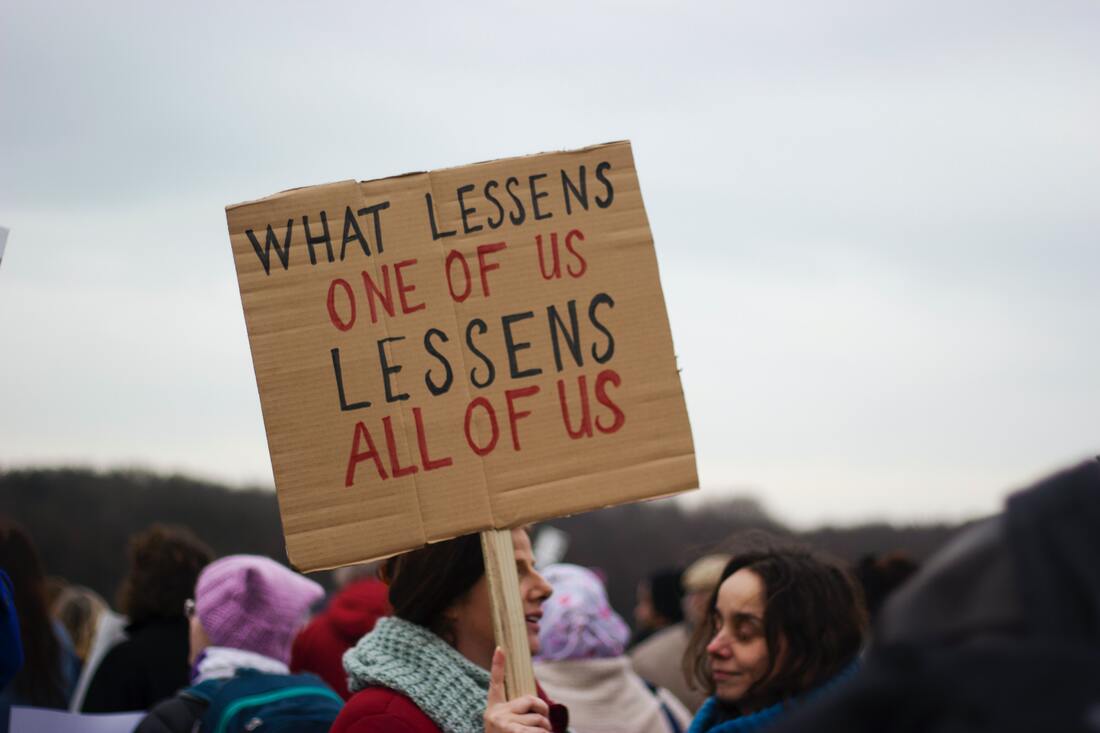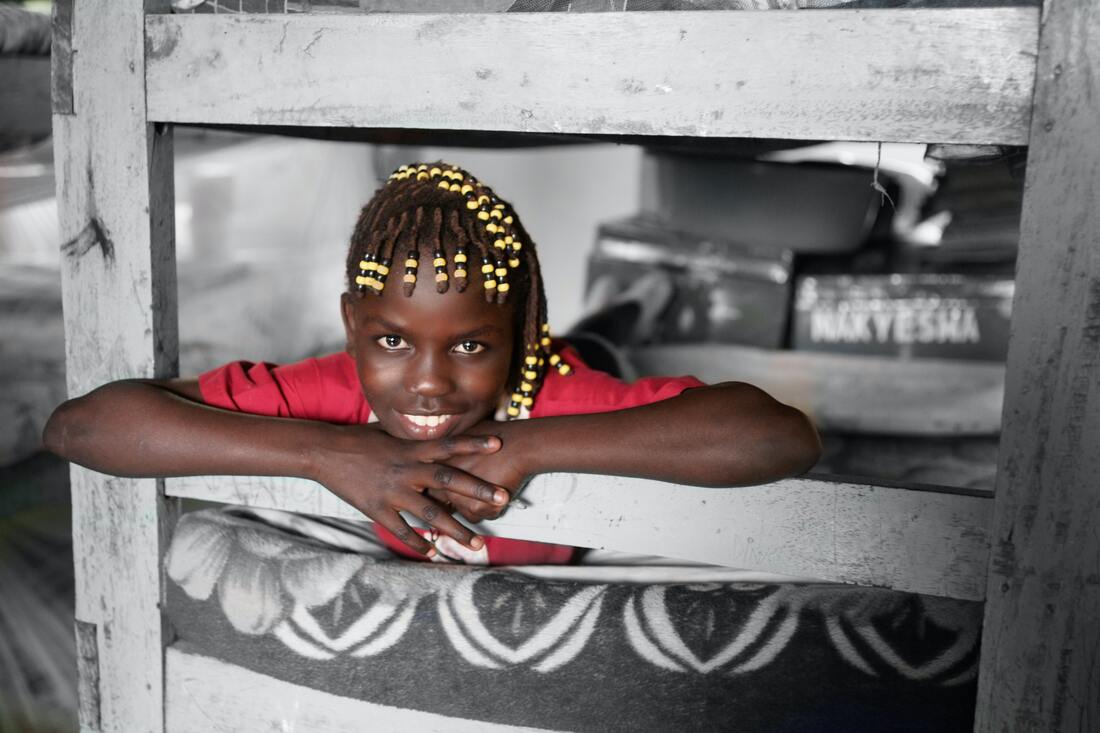Blog |
Blog |
Mentorship For GirlsMentoring girls can help them reach their full potential in education and career development. In a world of climate change, rising seas, and economic downturns, a world of a global pandemic and stunted education systems, girls are peering over the distance at a future that appears increasingly to be a mirage. How would girls aspire for something they can’t see or imagine? Where do they find the motivation to discover in a context of uncertainty? Girls can often find some of those answers in a mentor. A mentor is someone whom girls can speak to out loud, about their fears and uncertainty which often live in their heads and haunt their hearts. 1) What is girls’ mentorship?Mentorship is a process where girls reflect and share thoughts about their development prospects and career potential with a person who’s an expert in that field. However, there is much more explanation behind this short description. A mentor is a person who guides you through all the uncertainties and unanswered questions in your head, such as: “Where should I seek motivation during the hectic times we live in? How can I aspire for things if I am not sure about my future?” Girls’ mentorship is like a strong shoulder girls can lean on whenever they feel confused about life. Mentors play a huge role in their lives and can be of great help in numerous situations. A mentor is:
2) What are the benefits of mentorship?To have a mentor is to have someone you can speak out loud to, about fears and uncertainty which often live in your head and haunt your heart. It is a person who will read your CV and offer the distinction between dialogue and professional writing. They will be able to lift your competence from your life experiences and build your self-worth and self-love. A mentor can see your potential and present you with the million possibilities that you could transform it into. But mentoring has many more benefits beyond the girls’ personal growth, it can benefit their career choices as well. The advantages are numerous, and in this article, we'll list the more important for us: Benefits of becoming a Mentee as a girlThere are significant advantages for girls to have mentors, whether they are starting their career or they want to enhance their skills and abilities. Expert advice on One-on-One basisA mentor has earned professional training and technical skills, which they can teach girls. They can help girls with people skills, managing time and strategic partnerships, among other skills. Professional advancement at a faster paceMentors can figure out how long it takes to complete major career advancement over time. They can help girls accomplish similar goals and provide guidance to help them avoid possible pitfalls. Mentors can also keep track of the progress that they are making in areas that they want to develop in from career to personal development. Increased opportunity for networking:A mentor can connect girls with other industry leaders, broadening their career network. Their mentor may even be able to recommend them for new positions, training courses, or promotions to others. Boosted motivation:A mentor can assist girls in being more motivated and inspired. By reminding themselves what they're striving for by taking their mentor as an example. The personal encouragement of the mentor would boost girls’ confidence and eagerness to explore different things. Personalised recommendations:Depending on the girl's career path, a mentor may volunteer to examine or analyse their performance. They have worked in the sector before and can provide girls with a personalised assessment of their strengths and weaknesses. They can then collaborate with them to develop a tailored strategy for girls’ success. 3) How can girls be mentored?Girls can be mentored by giving them a horizon of perspectives in their career or personal life in a non-judgmental way, without instructing or narrowing their pathway. Emily Joof explains "A mentor helps you find the answers to your questions as well as takes you outside the box to inspire but also offers you to be a version of yourself that you thought didn't exist. For example I was coached when I didn't believe I had an aptitude for Math in school and encouraged me to play basketball even though I reach no higher than 1,5 meters tall" One of the most important skills a girl can have is confidence but unfortunately, 79% of women have admitted that they lack self-esteem (wear the city). Mentoring can help increase self-awareness which results in girls to realise their potential, therefore increasing confidence. This can be done by asking smart questions. For example, in a TED article, the mentor asked the mentee, “Could you please ask all the questions instead of me?” to which she then replied “why?” and the mentor explained, “Because I need to know what questions to ask.” In this dialogue, you can see how the mentor is trying to take layers off her shell by asking the right questions. My Mentor lifted my chin when I had no work experience and believed I had nothing to offer an employer. They reminded me that speaking three languages, travelling to 7 countries, leading Model UN, and Captaining my Basketball team was just as important to present to the world as experience. Communication skills, career guidance and overcoming hurdles in life are reasons why people turn towards mentoring. Emily said "I only knew a few careers due to restricted traditions and culture; law, medicine and accountancy. My mentor helped me open a whole new world of art, history, anthropology and sociology. The words “yes you can be an author” even when I knew nothing about creative writing and was about to dive headfirst into the world of publishing with no safety ring". Did you know that Maya Angelou was mentoring Oprah Winfrey? This shows to say, even the most successful people need a hand to hold onto so don't feel disheartened when you feel you need help or guidance. There will be many instances where changes in life can shake up our routine which could make us feel uncomfortable. This could be becoming a new mother. Someone told me breastfeeding was hard and offered tricks and tips to help which was a type of mentorship. Family issues are another reason to visit a mentor. Engaging the family via mentoring to improve relationships is critical for the mentor, mentee, and family's experience. Parents should realise that the mentor is there to assist in the development of a connection with the child, not to take the place of the parent. The child should find a sense of support and encouragement from those loving people, if the mentor and the family maintain open contact and participate in events and activities on a regular basis. There are different types of mentoring techniques which will be dependent on the individual:Virtual Mentoring(Phone, email or text) is one that is at each person's convenience and can be in the comfort of your own home. However, if your home environment is not conducive, there are other options available which will be discussed later in the course of this blog. Online mentoring programmes can help connect more than two mentors with the mentee to provide another aspect. There would be a higher chance of availability which also saves travelling and the environment. Mentees can easily access their mentors this way. Face to Face mentorshipIs the type of mentoring you can get the most out of depending on your needs. 60-80% of communication in these sessions is body language based which improves trust more than virtual communication. There will be more engagement and less likely to be distracted (together platform). Group mentoring sessionExpose you to other people's experiences and connect on a personal level. These sessions can be suitable for individuals struggling to communicate their thoughts and feelings. Group mentoring can be more engaging and take you out of your comfort zone and grow. However there are cons of this type as well; not getting one to one, perhaps limited confidentiality due to group or competition amongst group members (mentoring complete)a The ideal way for mentees and mentors to work together is to set mutually pre - defined goals. Be completely open and clear with your mentor about your job ambitions or objectives, personal qualities, and places for development. It's possible to have an informal or formal mentor connection. We recommend having an informal tone of voice, as when questions arise, having a direct chat could be more helpful. We also suggest interacting on a routine basis at least once a week to keep the mentor informed on any news or updates. 4) Who can mentor girls? And in what areas?As professionals, parents, careers and humans we can easily take on this challenge, to hold open our palms and offer girls a piece of your time, share our reflections, learnings and knowledge, Emily describes. A great mentor can see the potential and present in girls with a million possibilities that could help girls to transform. A great mentor can also have a massive impact on your chosen stream. But here comes the question of who can mentor girls, to the defined path they want? Well here are some of the individuals that can mentor girls and what kind of areas potential mentors can provide mentorship with:
These are some of the examples but other individuals can mentor and guide girls on the path to success. With a mentors' magical powers, they can get girls to believe that a tiny wooden stick filled with lead can make marks that another can read as words. -Emily. Let us know in the comments how Mentorship has impacted and supported you in your career or in life in general Authors
Find Out More:
6 Comments
Eliminating Violence Against Women and Girls#BreaktheBias |
Watch Powerful ConversationsWatch the series of the powerful conversations with our girls. The female guest speakers discussed on entrepreneurship, finance, Confidence-building, career and passion, and more... | Poems About Girls' RightsTo celebrate the International Day of the Girl Child 2022. Our girls shared poems, essays and artwork on the theme for this year's celebration. Our Future is Now. Our Rights, Our Future... |


| You'd be interested in our other blogs | |



| Read more about how an equal world will enable the world to thrive, how it can create opportunities, economic resources, economic participation and decision making. | Read more about how young Gambian girls can be introduced about female leadership at a young age to make the society better in the future. |
March 2024
January 2024
October 2023
September 2023
May 2023
February 2023
January 2023
December 2022
October 2022
June 2022
February 2022
July 2021
June 2021
April 2021
March 2021
February 2021
December 2020
November 2020
September 2020
July 2020
June 2020
April 2020
March 2020
January 2020
December 2019
All
Access To STEM
Barriers To Girls Education
Budgeting For Child Education
Child Sponsorship
Covid-19 And Girls' Education
Empowerment
Equality
Family Life & Relationship
Family-relationship-life
International Day Of Celebration
Myths Of Girls' Education
News And Updates
Technology And Innovation
Violence On Women And Girls
|
The SaGG Foundation (Sponsor a Gambian Girl) is a girl’s education movement, with aim of championing the cause for girl child education in The Gambia. Education is a basic human right; our vision is to advocate and champion for girls' education.
|
TAKE aCTION |
About us |
|
